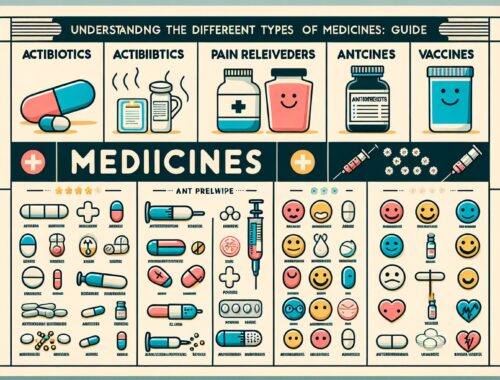
Exploring the Different Types of Medicines
Medicines are essential in treating various ailments and diseases that affect our health. There are different types of medicines available, each designed to target specific health conditions. Understanding the different types of medicines can help us better manage our health and make informed decisions about our treatment options.
Over-the-Counter Medicines
Over-the-counter (OTC) medicines are readily available without a prescription and can be purchased at pharmacies, grocery stores, and online. These medicines are typically used to treat common health issues such as headaches, colds, allergies, and minor pain. Some examples of OTC medicines include acetaminophen, ibuprofen, antihistamines, and cough syrups.
Prescription Medicines
Prescription medicines are medications that can only be obtained with a prescription from a healthcare provider. These medicines are often used to treat more serious health conditions that require a higher level of supervision and monitoring. Examples of prescription medicines include antibiotics, antidepressants, antipsychotics, and chemotherapy drugs.
Herbal Medicines
Herbal medicines, also known as botanical medicines, are derived from plants and plant extracts. These medicines have been used for centuries in traditional healing practices around the world. Some popular herbal medicines include ginseng, turmeric, echinacea, and garlic. While herbal medicines are considered natural and often perceived as safe, it is essential to consult with a healthcare provider before using them, as they can interact with other medications and have potential side effects.
Homeopathic Medicines
Homeopathic medicines are based on the concept of “like cures like,” where highly diluted substances are used to stimulate the body’s natural healing process. These medicines are used to treat a wide range of health conditions, including allergies, arthritis, and flu symptoms. Homeopathic medicines are available in various forms, such as tablets, ointments, and liquid drops.
Alternative and Complementary Medicines
Alternative and complementary medicines encompass a wide range of approaches that are used alongside or in place of conventional medicines. These include acupuncture, chiropractic care, aromatherapy, and traditional Chinese medicine. While some alternative and complementary medicines have shown promising results in treating certain health conditions, it is essential to consult with a healthcare provider to ensure they are safe and effective for individual use.
In conclusion, understanding the different types of medicines can help us make informed decisions about our health and treatment options. Whether it’s over-the-counter, prescription, herbal, homeopathic, or alternative and complementary medicines, each type offers unique benefits and considerations. Consulting with a healthcare provider is essential to determine the most appropriate treatment for our individual health needs.
You May Also Like

Understanding the Different Types of Medicines
February 29, 2024
Understanding the Different Types of Medicines
December 12, 2023

